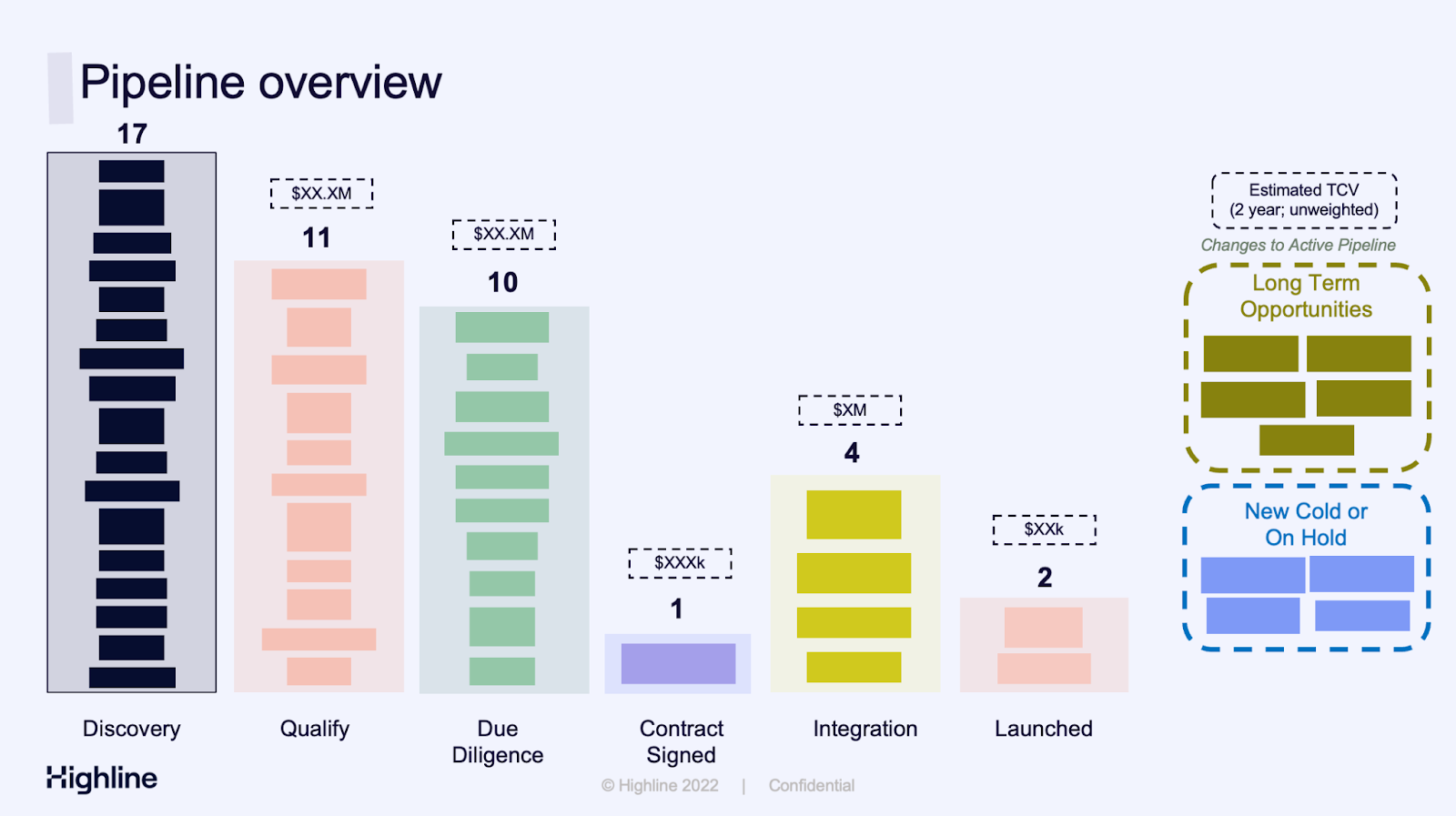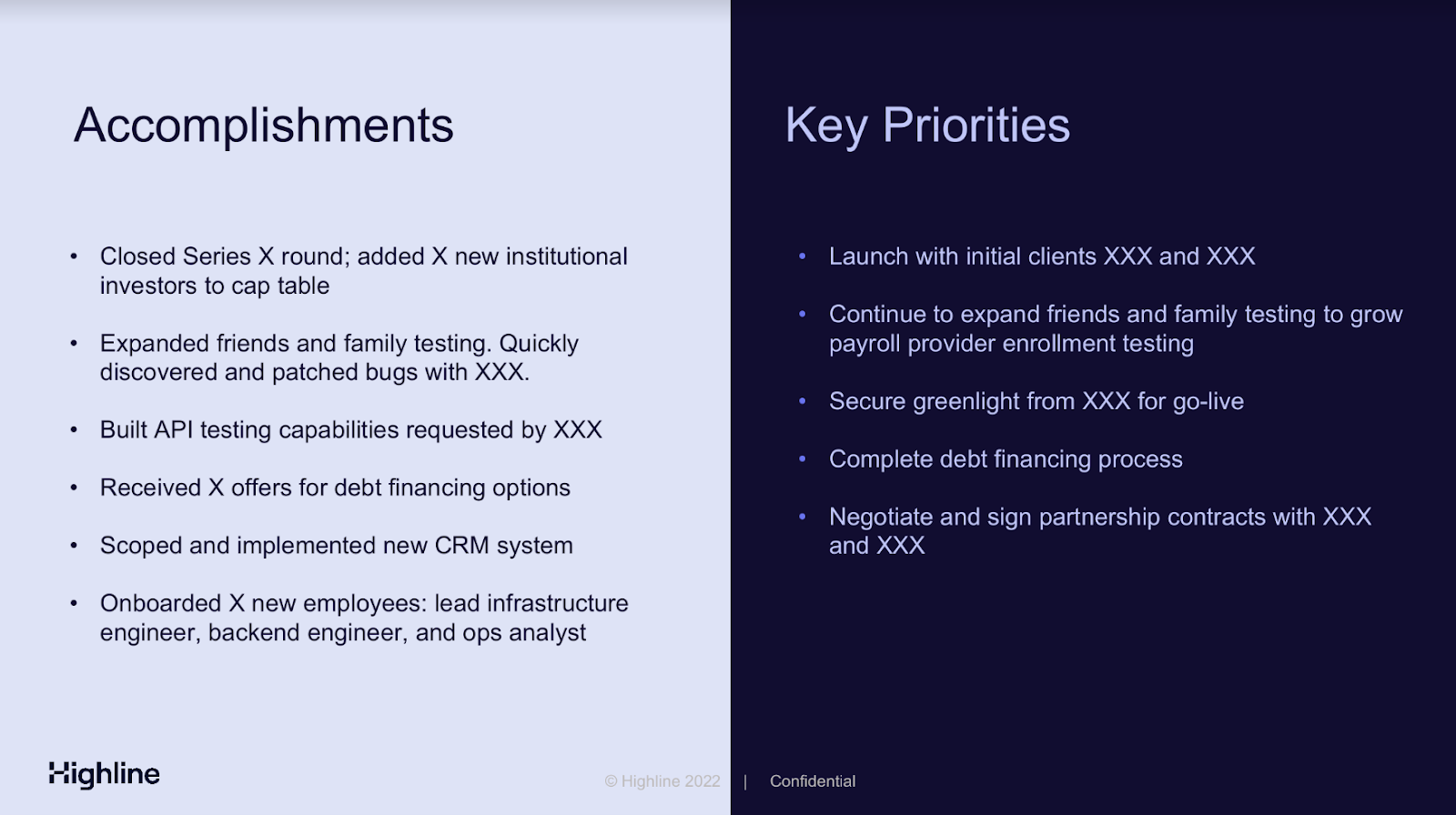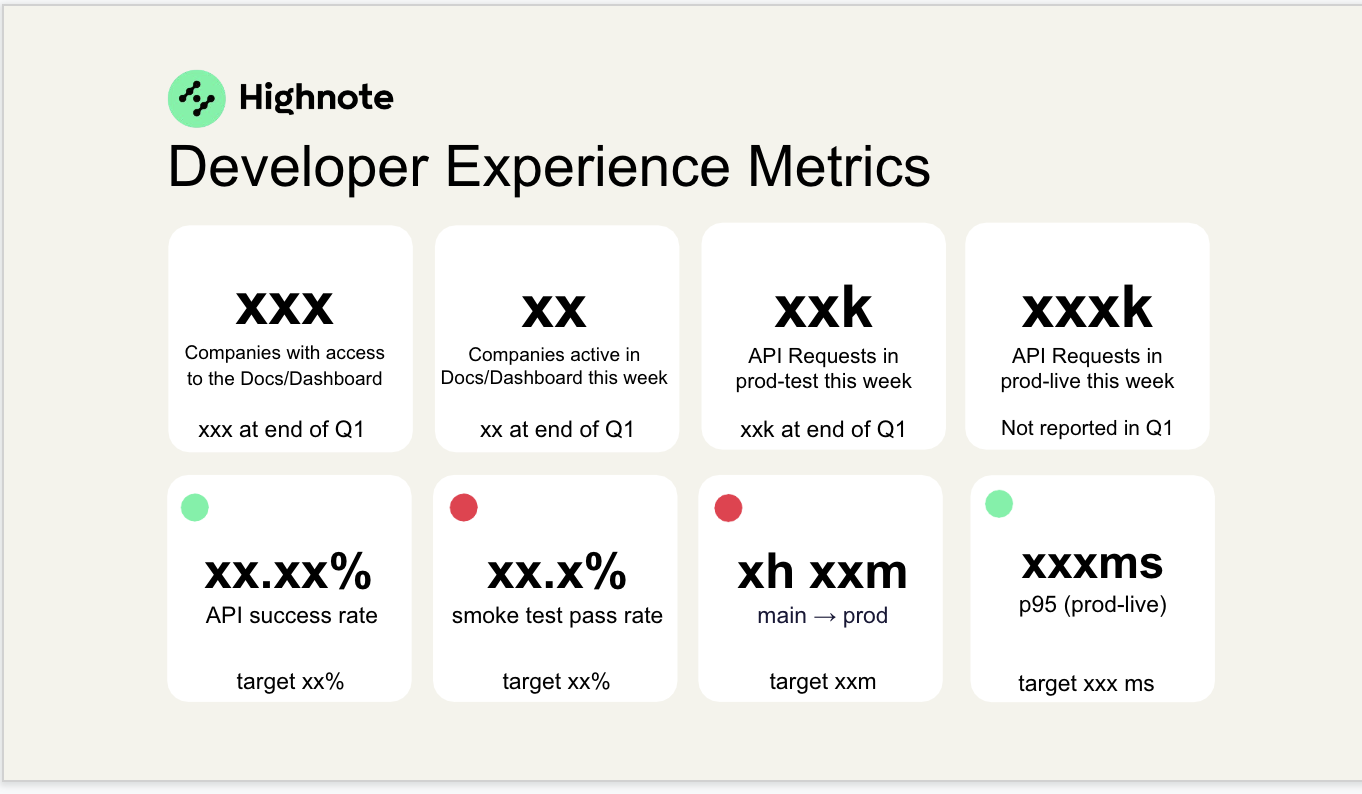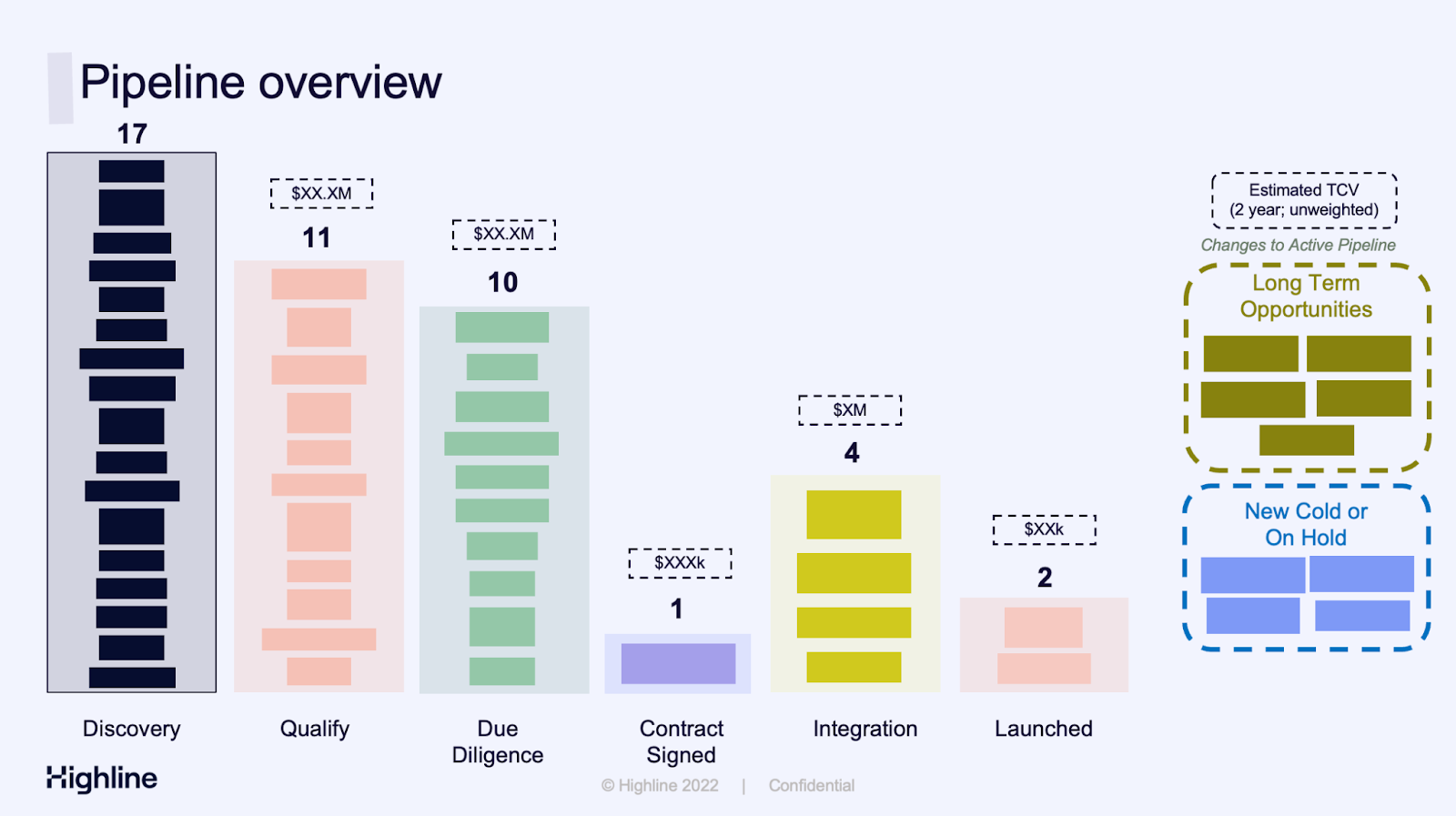
How to run efficient and effective early-stage board meetings
Of all the things an early-stage founder has to figure out, one of the most unexpected is how to get the most from your board. But effectively leveraging your board for guidance and support is essential. The slides you use can help you run efficient, effective board meetings that get the most out of the discussions they elicit.
A lot has been written about optimal board meeting cadence, process, and hygiene, but for the sake of completeness, at the earlier stages, often shorter (~1.5 hrs), more frequent meetings (~6 weeks) make sense.
Each board will have their preference and ultimately the cadence needs to work for everyone. You’ll want to send your materials 24-48 hours in advance to give participants time to review the material and formulate their questions. It’s also essential to include your “Head of…” functional leaders to discuss their areas of expertise.
Then dive into the material! As a CEO, your goal is to communicate the progress of the business clearly and elicit constructive feedback. So the information in your deck is more important than the visual design as you put together your board deck, although both matter.
The slides in this article aren’t meant to be a complete board deck. They are examples of real, early-stage board slides from seed and Series A stage companies that did a great job informing their boards and driving constructive discussions. [Disclosure: Costanoa Ventures has invested in Highnote and Highline.]
Showing business progress: Where the rubber meets the road

Image Credits: Costanoa Ventures
This is a strong open: it briefly recaps major accomplishments and sets the stage for the company’s key priorities until the next board update. It also effectively frames the CEO’s key discussion points with the board. While ideally your board will have read slides in advance, they often won’t.
This slide helps everyone level-set up front, creating a framework for helpful discussion.Remember, that’s what a board meeting is all about: discussion, not a presentation or a read-out.

Image Credits: Costanoa Ventures
Here’s another great slide: the “business metrics overview” is a snapshot of the key metrics by which the board should measure the company. Each company will have its own key metrics, but it’s good to open with a summary that sets the context for how progress should be measured.
Your board members typically work with many companies, and don’t always know the best ways to measure your company’s progress. So this is where you frame how best to understand your specific key metrics.
For early-stage companies, revenue is usually a lagging indicator, so not your most important metric. By setting out what are your key metrics, and flagging them with red or green dots, for instance, your board can quickly see what is/isn’t on track, which they always need to know. Unlike you, they don’t live and die by your plan, so you’ll need to remind them here.

Image Credits: Costanoa Ventures

